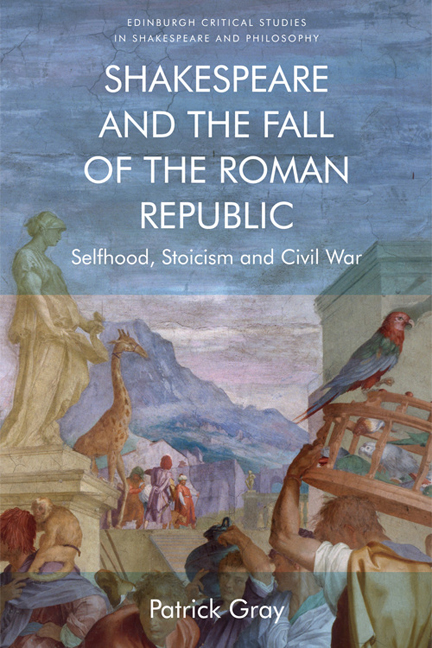Conclusion to Part I - Shakespeare’s Passion Play
Summary
Shakespeare's representation of Julius Caesar differs notably from that of his contemporaries, as well as from the picture of Caesar that emerges from his most obvious classical source, Plutarch's Lives. Plutarch's Caesar is shrewd, resilient and relatively dignified; Shakespeare’s, by contrast, is physically weak and surprisingly obtuse; prey to laughable grandiosity. Other early modern authors such as Marc-Antoine Muret and William Alexander model their versions of Caesar on Seneca's Hercules, as well as Plutarch's biography. Shakespeare, however, seems to draw inspiration for his departure from Plutarch from the conventional depiction of Julius Caesar's successor, Augustus, in medieval English mystery plays, as well as other tyrants such as Herod the Great. Over the course of these pageants, depicting Christian salvation history, protagonists such as Moses and Isaac set up a typology of Christ. Meanwhile, however, secular antagonists such as the Pharaoh of Egypt establish a contrary pattern: a typology of Antichrist. Like Lucifer, as well as Antichrist himself, ‘Caesar’ in the mystery plays is typecast as a blustering, comically inadequate parody of Godhead. Vaunting speeches proclaiming his supreme worldly might echo the language of God the Father. These boasts are then belied, however, by his inability to forestall the coming of Christ, whom he fears as potential political rival. Mystery plays, naturally enough, tend to focus on Augustus Caesar, emperor of Rome at the time of Christ's Nativity. Shakespeare's Julius Caesar, however, stands in the same medieval tradition. As a type of Antichrist, he is a foil for the future Christ. His failure sets the stage for a different and paradoxically more powerful Messiah.
In the nineteenth century, Shakespeare's representation of Caesar as a self-important blowhard met with cries of critical dismay. ‘We do not much admire the representation given here of Julius Caesar,’ William Hazlitt complains, ‘nor do we think it answers to the portrait of him in his commentaries. He makes several vapouring and rather pedantic speeches, and does nothing.’ George Bernard Shaw is less restrained. ‘It is impossible for even the most judicially-minded critic to look without revulsion of indignant contempt at this travestying of a great man as a silly braggart.’ James Boswell, son of the famous biographer, saw the problem as evidence of Shakespeare's proverbial ‘small Latin and less Greek’.
- Type
- Chapter
- Information
- Shakespeare and the Fall of the Roman RepublicSelfhood, Stoicism and Civil War, pp. 145 - 174Publisher: Edinburgh University PressPrint publication year: 2018

